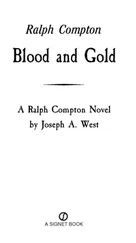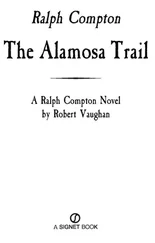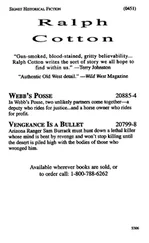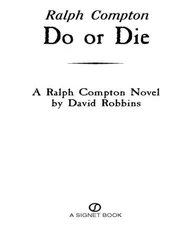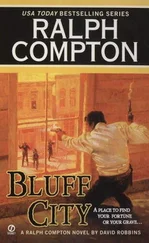Ralph Compton - West of the Law
Здесь есть возможность читать онлайн «Ralph Compton - West of the Law» весь текст электронной книги совершенно бесплатно (целиком полную версию без сокращений). В некоторых случаях можно слушать аудио, скачать через торрент в формате fb2 и присутствует краткое содержание. Год выпуска: 2008, ISBN: 2008, Издательство: Thorndike Press, Жанр: Старинная литература, на английском языке. Описание произведения, (предисловие) а так же отзывы посетителей доступны на портале библиотеки ЛибКат.
- Название:West of the Law
- Автор:
- Издательство:Thorndike Press
- Жанр:
- Год:2008
- ISBN:9781410409225
- Рейтинг книги:4 / 5. Голосов: 1
-
Избранное:Добавить в избранное
- Отзывы:
-
Ваша оценка:
- 80
- 1
- 2
- 3
- 4
- 5
West of the Law: краткое содержание, описание и аннотация
Предлагаем к чтению аннотацию, описание, краткое содержание или предисловие (зависит от того, что написал сам автор книги «West of the Law»). Если вы не нашли необходимую информацию о книге — напишите в комментариях, мы постараемся отыскать её.
West of the Law — читать онлайн бесплатно полную книгу (весь текст) целиком
Ниже представлен текст книги, разбитый по страницам. Система сохранения места последней прочитанной страницы, позволяет с удобством читать онлайн бесплатно книгу «West of the Law», без необходимости каждый раз заново искать на чём Вы остановились. Поставьте закладку, и сможете в любой момент перейти на страницу, на которой закончили чтение.
Интервал:
Закладка:
‘‘Advise away,’’ McBride said. ‘‘I’m listening.’’
The clerk nodded, smiling. ‘‘Good, because it’s been my experience that advice is seldom welcome, and them who need it most, like it the least.’’
‘‘Like I said, I’m listening.’’
As though intimidated by McBride’s size now that he was standing next to him, the clerk gulped down a breath and said, ‘‘The way to keep on living in High Hopes is to see nothing.’’ He glanced fearfully over his shoulder, then back at the tall man. ‘‘Just mind your own business, you understand? You might see things, hear things, but you just walk away and say nothing. Out here you’re west of the law, west of most everything. Nothing in High Hopes is as it seems. Everything is upside down, higgledy-piggledy. You get my drift?’’
McBride nodded. ‘‘That sits fine with me. I’m not hunting trouble, here or anywhere else.’’ He touched the brim of his hat. ‘‘Obliged to you. Now I’ll look up that hotel.’’
The clerk shot out his hand and grasped the big man’s arm. ‘‘There’s one more thing.’’
Slightly irritated, McBride nevertheless held his temper and asked, ‘‘And what’s that?’’
‘‘There’s a man in town, goes by the name of Hack Burns. He’s poison-mean and fast as chained lightning with a gun. Since he’s been here, he’s killed three men, and a fourth, the town marshal, is right now lying at death’s door with Hack’s bullet in him. Now, if you come across this here Hack Burns, just step around him real quiet an’ respectful-like and you’ll be fine.’’
All this was nothing new to McBride. Even as a child on the mean streets of the Kitchen he’d been warned about hard cases and over the years he’d come up against quite a few. As things had turned out, he’d proved himself to be a harder case than most of them.
‘‘Sounds like a good man to avoid,’’ he allowed, playing the rube a little longer. ‘‘I’ll be sure to give Mr. Burns a wide berth. How will I know him?’’
‘‘You’ll know him when you see him. Wears two guns in crossed belts real low on his hips and right here’’—the clerk’s fingers strayed to his left cheek—‘‘he’s got a stain on his face, looks like spilled port wine. Whatever you do, mister, don’t mention it. Hack killed a cowboy last week who funned him about it.’’
‘‘The mark of Cain,’’ McBride said.
‘‘Huh?’’
The big man shook his head. ‘‘Nothing. It’s something I read one time.’’
‘‘Well, don’t call him Cain either. If you have to talk to him, you say ‘Mr. Burns,’ and you say it real polite-like. If you don’t, he might gun you quicker’n scat.’’
McBride let the smile that threatened to come to his lips die stillborn. ‘‘I’ll remember,’’ he said. ‘‘Call him Mr. Burns and don’t mention the mark.’’
‘‘See that you do remember,’’ the clerk said, his face stiff and parchment-yellow in the glow of the oil lamps. ‘‘Just see you do.’’ His smile was faint. ‘‘You’ll live longer that way.’’
Chapter 3
McBride left the station and crossed the street, picking his way through a noisy throng of bearded, profane miners, townspeople hurrying about their business with downcast eyes, lawyers and land speculators in black broadcloth, a few booted and spurred punchers astride wiry cow ponies and a scattering of Chinese who chattered incessantly in a tongue nobody else could understand.
The saloons were roaring, interior oil lamps’ hazy halos of orange light lost in a fog of blue cigar smoke. Men bellowed, made loud and bold by whiskey, and the sudden, strident laughter of hard-eyed women rang false, chiming wild like cracked crystal bells.
The town was booming, bursting at the seams, its sea of lights holding back the night. The hour was yet early and High Hopes was just hitting its stride, a seething, shifting mass of humanity eagerly seeking to commit one or all of the seven deadly sins in a place where such transgressions came easy, but never cheap.
For his part, born and raised amid the swarming squalor of Hell’s Kitchen, McBride felt right at home and forced a path for himself by elbowing his way through the crowd to the lobby of the Killeen Hotel.
A prominent sign on the wall opposite the door read:
The majority of our rooms are without transoms, ventilation being obtained by the use of adjustable windows. Guests may therefore lie down to peaceful slumbers undisturbed by apprehensions of getting their heads blown off or having their valuables lifted by burglars.
—The Management.
Smiling, McBride signed the register as John Smith, apparently a common name in those parts, since the disinterested desk clerk didn’t even raise an eyebrow. Then he climbed the stairs to his room on the second floor.
As the man at the station had promised, the room was clean. The bed had fresh sheets and there was a pitcher of water and a basin on a small table. The dresser had a mirror, a rare luxury in the West, and there was a pine clothes closet. Lace curtains hung in the room’s only window and an oil lamp stood on the bed stand.
McBride closed the curtains, lit the lamp, then unpacked his few belongings—shirts, socks and a supply of celluloid collars. He took off his high-buttoned coat and sat on the bed, hearing it creak under his weight. He broke open the Smith & Wesson, ejected the shells and thoroughly cleaned and oiled the gun before he reloaded and slid it back into the shoulder holster. The .38 had been a considerable investment on McBride’s part, almost a month’s salary, and he lavished much more care on the revolver than he did on himself.
A restlessness in him, McBride stepped to the window. He pushed back the curtain, raised the window a few inches and looked outside. A hollow moon was rising and the night was hot, heat lightning flashing to the west over the Spanish Peaks, an electric-blue radiance throbbing in the dark sky. The air smelled of dust, horse dung, cigar smoke and sweat. Pianos played in the saloons, their competing tunes tangling in a calamitous cacophony of jangled notes that fluttered aimlessly in the air like stricken moths.
He was about to close the window and walk away when McBride’s attention was attracted to a freight wagon drawn by a couple of sturdy Morgans that had just pulled up at the entrance to the shadowed alley beside the Golden Garter. Normally, he would have glanced at the wagon, then dismissed it from his mind. But there was something different, even sinister about this one. An iron cage had been built into the bed, and in the uncertain light McBride thought he could make out the huddled shapes of several women.
The driver, a tall, heavy man with a red beard that spilled over his chest, jumped down from the box. He was joined by a smaller man carrying a Henry rifle, his thin cheeks pooled with shadow. The red-bearded man, a miner, judging by his battered hat, plaid shirt and mule-eared boots, held a coiled bullwhip in his right hand. He stepped to the back of the wagon, clanked a key in a lock and opened the door of the cage.
McBride watched the man motion with the whip, and a tiny woman rose and crouched hesitantly at the door. Red Beard cursed, then angrily waved the whip again, and the woman dropped lightly to the ground. Now that McBride could see her better, he realized that this was not a grown woman but a young, slight girl in her early teens. She was Chinese and her round face held a mix of fear and apprehension.
Red Beard swore again, motioning with his whip, and three more girls joined the first. They were just as young, just as slight and equally frightened. The big miner made another irritable motion with the whip, pointing it toward the alley. The four girls clung to one another and, their long, blue-black hair gleaming in the light of the oil lamps outside the saloon, shuffled into the alley. Red Beard and the man with the rifle followed. Soon they were swallowed by darkness and McBride could see them no more.
Читать дальшеИнтервал:
Закладка:
Похожие книги на «West of the Law»
Представляем Вашему вниманию похожие книги на «West of the Law» списком для выбора. Мы отобрали схожую по названию и смыслу литературу в надежде предоставить читателям больше вариантов отыскать новые, интересные, ещё непрочитанные произведения.
Обсуждение, отзывы о книге «West of the Law» и просто собственные мнения читателей. Оставьте ваши комментарии, напишите, что Вы думаете о произведении, его смысле или главных героях. Укажите что конкретно понравилось, а что нет, и почему Вы так считаете.

